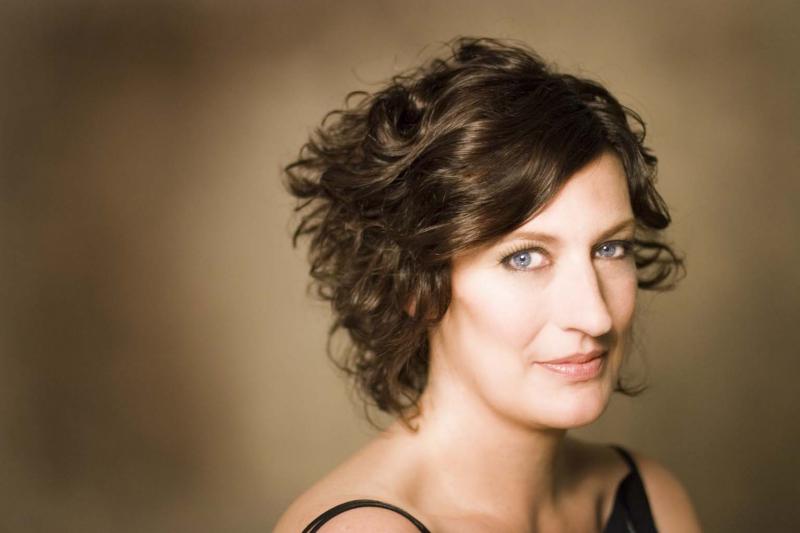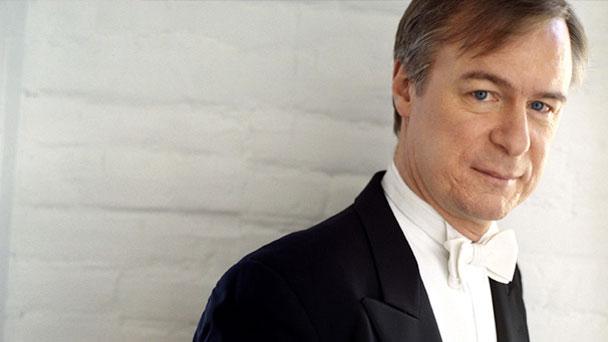BBC Proms: BBCSO, BBC Proms Youth Choir, Robertson | reviews, news & interviews
BBC Proms: BBCSO, BBC Proms Youth Choir, Robertson
BBC Proms: BBCSO, BBC Proms Youth Choir, Robertson
A youth choir tackles Tippett's great oratorio with mature understanding and serious skill

Another day at the Proms, another English choral masterpiece. Last night it came courtesy of the newly formed BBC Proms Youth Choir – a moveable feast of an ensemble that will bring together different youth choirs from across the UK over the next three years. I can’t imagine a more apt work to inaugurate the project than Tippett’s bravely painful meditation on human cruelty and capacity for endurance, A Child of Our Time.
Trained by Simon Halsey, the young singers tackled the more inscrutable narrative elements of Tippett’s oratorio with real understanding. So much of the success of the work lies in storytelling, in wedding the abstract prophesying and moralising of the outer sections to the personal tale of the central one. This they achieved with some excellent diction (so crucial given the acres that separate the two sides of the RAH choir stalls) and quick-footed shifts between styles. The muscular tone of attack demanded by The Terror gave smoothly into the choral blend for the set-piece spirituals and the stillness of the outer, meditative moments.
Sykes's unduly free rhythms generated some heart-stopping tension and more than a few traffic-jam cadences
Unfortunately the choral unanimity wasn’t shared among the four soloists, who each seemed to have a different oratorio in mind when calibrating their performance. The breadth of Tippett’s musical vision is such that the piece works any number of ways, but not all simultaneously.
Bass Jubilant Sykes was perhaps the most natural fit for the music, bringing an almost musical-theatre directness to the recitative passages and an authentic Gospel swing to the spirituals. Unfortunately his unduly free rhythms couldn’t (or didn’t try to) accommodate the massed choral and orchestral forces around him, generating some heart-stopping tension and more than a few traffic-jam cadences.
Sarah Connolly offered the classic English interpretation – clean, unfussy and offering moments of casual beauty (her “but pity breaks open the heart” in particular). But while she played down the operatic in favour of a more intimate approach, tenor Paul Groves did not. His hooty, impersonal delivery felt ill-suited to the work, and some of the higher passages left him struggling vocally.
While the quality of Sally Matthews’ instrument is beyond reproach, floating the high passages and bringing such resonance to the lower-lying scenes of conflict, her vowels are a major impediment in this kind of vernacular repertoire. When we lose the words we lose the heart of Tippett’s work, and in competition with the bright twang of Sykes’s timbre she came off a poor second.
 A sampler of American (post)modernism, the first-half showcased experimental music (Charles Ives’ The Unanswered Question), romanticism-revisited (Barber’s Adagio for strings) and a jazz-serial hybrid (Zimmermann’s trumpet concerto Nobody knows de trouble I see).
A sampler of American (post)modernism, the first-half showcased experimental music (Charles Ives’ The Unanswered Question), romanticism-revisited (Barber’s Adagio for strings) and a jazz-serial hybrid (Zimmermann’s trumpet concerto Nobody knows de trouble I see).
Banishing the trumpet up into the gallery and spreading the mocking chorus of flutes right across the back of the stage, The Unanswered Question was aided by its acoustic drama. Robertson (pictured above) pitched the determined pianissimo well for the still-restless crowd, silencing them with this tricky opener and opting for a very natural attacca into the Barber. While the restraint of the BBCSO was admirable here, it was also just a little under-cooked at times, especially with the ecstatic sheen of the BBC National Orchestra of Wales still glowing in the ears.
The Zimmerman saw the orchestra joined by Håkan Hardenberger for a performance as cool as his outfit. It’s a tough work to warm to; for every jazzy come-hither it hurls you back with a serial contortion. Both Robertson and Hardenberger clearly have an affinity for this ballsy concerto, and their musicality (and the aid of a whole section of saxophones, a guitar and a Hammond organ) just about sold it.
The coolly sustained strings of the Ives flowed directly into those of the Barber, while Ives’ offstage solo trumpet became in turn the foreground soloist for the concerto; finally the contorted spiritual so buried in the Zimmerman was stripped-back to its basics, becoming the four spirituals in Tippett’s oratorio. This was a beautiful, elegant piece of programming, and despite a few musical issues made for one of the most satisfying musical wholes of the season.
Explore topics
Share this article
Add comment
The future of Arts Journalism
You can stop theartsdesk.com closing!
We urgently need financing to survive. Our fundraising drive has thus far raised £49,000 but we need to reach £100,000 or we will be forced to close. Please contribute here: https://gofund.me/c3f6033d
And if you can forward this information to anyone who might assist, we’d be grateful.

Subscribe to theartsdesk.com
Thank you for continuing to read our work on theartsdesk.com. For unlimited access to every article in its entirety, including our archive of more than 15,000 pieces, we're asking for £5 per month or £40 per year. We feel it's a very good deal, and hope you do too.
To take a subscription now simply click here.
And if you're looking for that extra gift for a friend or family member, why not treat them to a theartsdesk.com gift subscription?
more Classical music
 Goldscheider, Brother Tree Sound, Kings Place review - music of hope from a young composer
Unusual combination of horn, strings and electronics makes for some intriguing listening
Goldscheider, Brother Tree Sound, Kings Place review - music of hope from a young composer
Unusual combination of horn, strings and electronics makes for some intriguing listening
 theartsdesk Q&A: composer Donghoon Shin on his new concerto for pianist Seong-Jin Cho
Classical music makes its debut at London's K-Music Festival
theartsdesk Q&A: composer Donghoon Shin on his new concerto for pianist Seong-Jin Cho
Classical music makes its debut at London's K-Music Festival
 Helleur-Simcock, Hallé, Wong, Bridgewater Hall, Manchester review - moving lyricism in Elgar’s concerto
Season opener brings lyrical beauty, crisp confidence and a proper Romantic wallow
Helleur-Simcock, Hallé, Wong, Bridgewater Hall, Manchester review - moving lyricism in Elgar’s concerto
Season opener brings lyrical beauty, crisp confidence and a proper Romantic wallow
 Kohout, Spence, Braun, Manchester Camerata, Huth, RNCM, Manchester review - joy, insight, imagination and unanimity
Celebration of the past with stars of the future at the Royal Northern College
Kohout, Spence, Braun, Manchester Camerata, Huth, RNCM, Manchester review - joy, insight, imagination and unanimity
Celebration of the past with stars of the future at the Royal Northern College
 Jansen, LSO, Pappano, Barbican review - profound and bracing emotional workouts
Great soloist, conductor and orchestra take Britten and Shostakovich to the edge
Jansen, LSO, Pappano, Barbican review - profound and bracing emotional workouts
Great soloist, conductor and orchestra take Britten and Shostakovich to the edge
 Jakub Hrůša and Friends in Concert, Royal Opera review - fleshcreep in two uneven halves
Bartók kept short, and a sprawling Dvořák choral ballad done as well as it could be
Jakub Hrůša and Friends in Concert, Royal Opera review - fleshcreep in two uneven halves
Bartók kept short, and a sprawling Dvořák choral ballad done as well as it could be
 Hadelich, BBC Philharmonic, Storgårds, Bridgewater Hall, Manchester review - youth, fate and pain
Prokofiev in the hands of a fine violinist has surely never sounded better
Hadelich, BBC Philharmonic, Storgårds, Bridgewater Hall, Manchester review - youth, fate and pain
Prokofiev in the hands of a fine violinist has surely never sounded better
 Monteverdi Choir, ORR, Heras-Casado, St Martin-in-the-Fields review - flames of joy and sorrow
First-rate soloists, choir and orchestra unite in a blazing Mozart Requiem
Monteverdi Choir, ORR, Heras-Casado, St Martin-in-the-Fields review - flames of joy and sorrow
First-rate soloists, choir and orchestra unite in a blazing Mozart Requiem
 Cho, LSO, Pappano, Barbican review - finely-focused stormy weather
Chameleonic Seong-Jin Cho is a match for the fine-tuning of the LSO’s Chief Conductor
Cho, LSO, Pappano, Barbican review - finely-focused stormy weather
Chameleonic Seong-Jin Cho is a match for the fine-tuning of the LSO’s Chief Conductor
 Classical CDs: Shrouds, silhouettes and superstition
Cello concertos, choral collections and a stunning tribute to a contemporary giant
Classical CDs: Shrouds, silhouettes and superstition
Cello concertos, choral collections and a stunning tribute to a contemporary giant
 Appl, Levickis, Wigmore Hall review - fun to the fore in cabaret and show songs
A relaxed evening of light-hearted fare, with the accordion offering unusual colours
Appl, Levickis, Wigmore Hall review - fun to the fore in cabaret and show songs
A relaxed evening of light-hearted fare, with the accordion offering unusual colours
 Lammermuir Festival 2025, Part 2 review - from the soaringly sublime to the zoologically ridiculous
Bigger than ever, and the quality remains astonishingly high
Lammermuir Festival 2025, Part 2 review - from the soaringly sublime to the zoologically ridiculous
Bigger than ever, and the quality remains astonishingly high

Comments
Great, scrupulously fair
A very fair review, and I
A very fair review, and I fully agree with your comments on the quality of the choral singing. I found the pulling around of the tempo by Jubilant Sykes rather annoying (particularly where he lost the orchestra and chorus momentarily), and while I agree that Sally Matthews' diction was less good than the other soloists (let alone the choir), I found the way her voice floated over the chorus in the spirituals incredibly moving. I enjoyed the Zimmmermann more than I did last time (some time in the mid '90s), but whether that says more about me or the piece I don't know. In any event, I agree with Seb's thoughtful comments above about it.